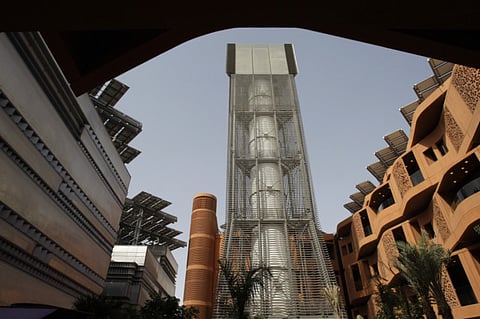Hope amid anxiety as Qatar hosts climate talks
Activists seek more from Gulf states by way of emission targets and oil subsidy cuts

Doha: When Qatar was chosen to host the latest round of United Nations climate change negotiations, environmentalists were stunned.
Talks were already in trouble, and now the high-level discussions were moving to a member of the Organisation of the Petroleum Exporting Countries (Opec) that had shown little interest in climate change and appointed a former oil minister to lead the negotiations, which start on Monday. The country’s economic boom was driven by vast oil and gas reserves and it has also made Qatar the world’s highest per capita carbon dioxide emitter.
“Non-government organisations had mixed feelings about it,” said Wael Humaidan, a Lebanese activist who is director of the Climate Action Network. “Some were very concerned and found it a threat knowing that Qatar has not been engaged in the climate change negotiations, while others found it an opportunity to get the climate debate higher on the political agenda of the region.”
Activists complain Qatar has shown little leadership so far and been much less transparent than previous hosts of the annual climate conference.
Among the most vocal critics has been advocacy group Avaaz, which asserts that “having one of the Opec leaders in charge of climate talks is like asking Dracula to look after a blood bank.” It also criticised Qatari leaders for attending a big oil conference just ahead of the talks, a sign its priorities may misplaced.
But publicly, delegates have been careful to avoid criticising the country.
The top United Nations climate official said preparations are on track. “I’m not concerned,” said Christiana Figueres, the executive secretary of the United Nations Climate Change secretariat. “We are very grateful. Qatar not only offered, but literally fought for the opportunity and privilege of hosting. We have been impressed with work of the Qatar team and how they have brought themselves very quickly up to speed with the complexity of the issues,” she said.
Activists want to see Gulf countries go further at the climate talks.
Former Irish president Mary Robinson said Gulf states should commit to voluntary emissions targets, like former conference host Mexico did. Gulf nations’ total emissions are a fraction of China’s and the United States’, but setting targets would help inspire others to take action.
“Leadership of the Gulf countries is very important” she said at a meeting addressing climate change in Dubai.
Activists say they also could do more to cut fuel subsidies that make bottled water more expensive than gasoline in many Gulf countries, policies partly enacted to keep the lid on political dissent.
Others have called on the Gulf — which has some of the world’s highest per capita incomes thanks to vast oil reserves — to contribute to the UN’s Green Climate Fund. The fund aims to channel $100 billion (Dh367.20 billion) annually by 2020 in aid to poor countries.
“Qatar has a GDP per capita which is three times ours in Europe,” EU climate commissioner Connie Hedegaard told The Associated Press. “Should ... also the Qataris come up with some financing? So we have tried to encourage them. I don’t know what the response will be, but let’s see.”
Expectations are also high that the Gulf countries will play a more productive and public role in negotiations, after years in which only the UAE stood against demands by some Opec members that they be compensated for loss of oil revenues in any agreement — a move criticised by impoverished nations.
Those views have been moderated, Al Attiyah said, as Gulf countries recognise efforts to diversify their economies are not as difficult and costly as they once seemed. Still, Gulf countries led by Saudi Arabia are demanding measures in any agreement that would assist them in shifting away from fossil fuels.
The Gulf countries want to have the right to use a diversity of energy sources, including both fossil fuels and renewables, said Al Attiyah. “It’s not an excuse,” he said. “Every country wants that right, provided that right to diversify is governed by rules that say, for instance, you are not going to diversify at the expense of causing more damage to the environment.”
Sign up for the Daily Briefing
Get the latest news and updates straight to your inbox



